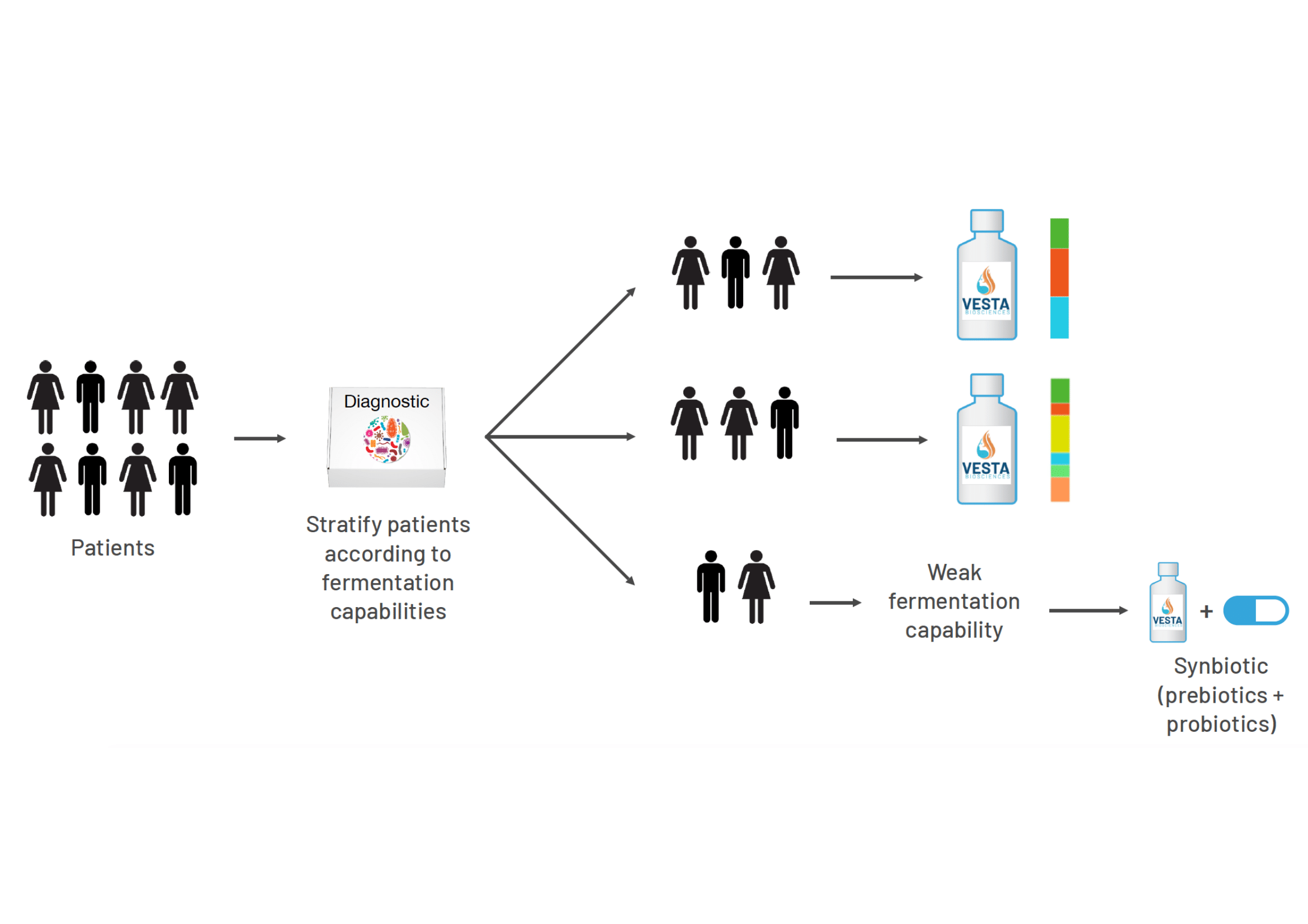Antibiotics / Microbiome
Building a personalised therapeutic framework around Short Chain Fatty Acid production through dietary fibre supplementation

Thomas Gurry 1, Laure Garnier 1 and Leonardo Scapozza 1
1 School of Pharmaceutical Sciences, University of Geneva, Rue Michel-Servet 1, 1206 Genève
One of the key functions of the human gut microbiome, the collective set of microorganisms inhabiting our guts, is to degrade dietary fibers in the food that we eat and as a result produce Short Chain Fatty Acids, which are molecules exclusively of microbial origin but of great importance to health, impacting diseases ranging from Inflammatory Bowel Disease to neurological conditions. Recent work has shown that different individuals degrade the same dietary fiber into different quantities of these molecules of clinical interest. Put differently, two different individuals should consume different dietary fibers if they want to optimize the production of these key molecules. We use DNA sequencing, analytical chemistry and machine learning approaches to create a diagnostic kit that identifies a patient's microbial metabolic profile and the specific fruits and vegetables that are most conducive to their health as a function of this composition. By applying the technology in the context of different clinical indications, we aim to build a therapeutic framework around modulating Short Chain Fatty Acid production in the gut in order to treat or prevent disease.